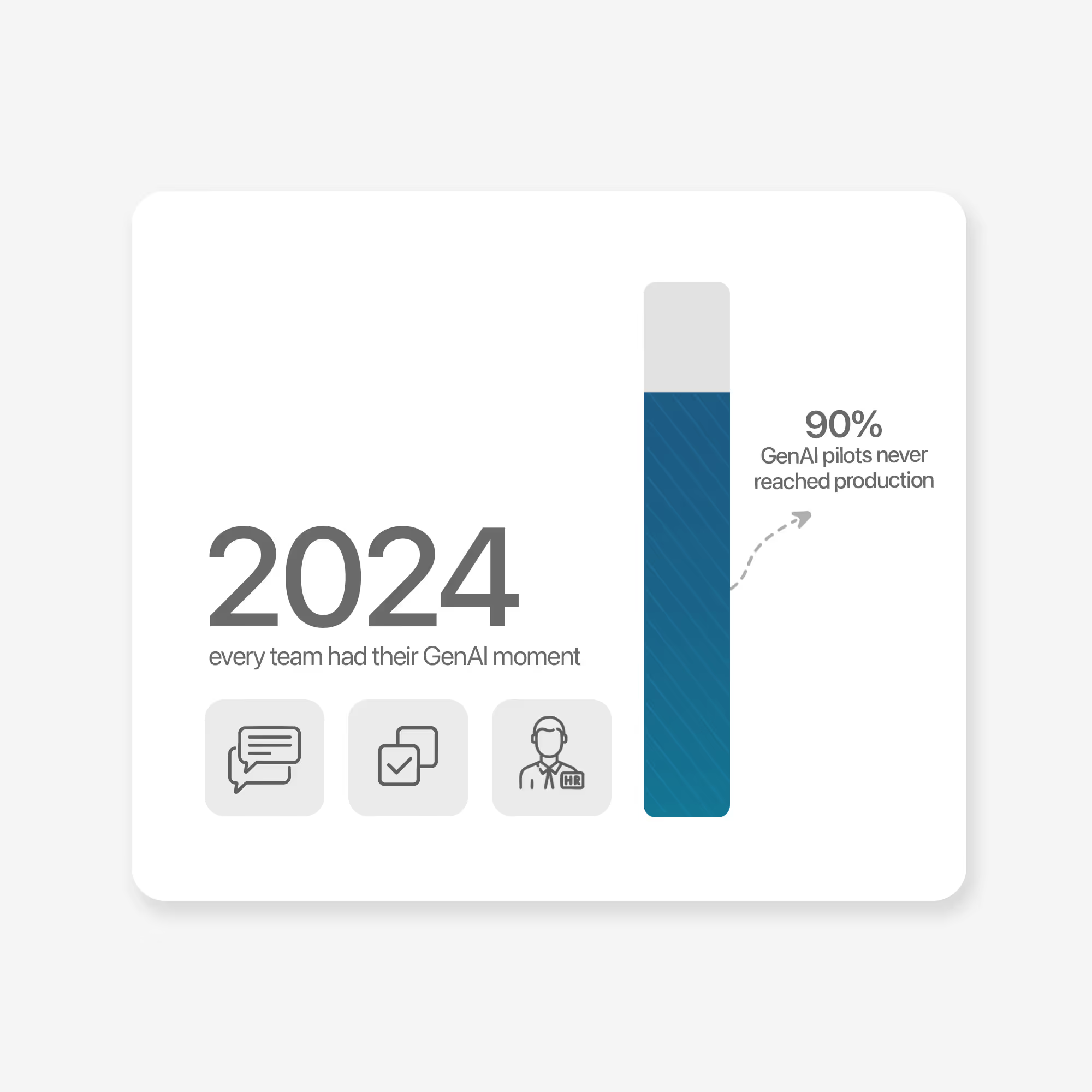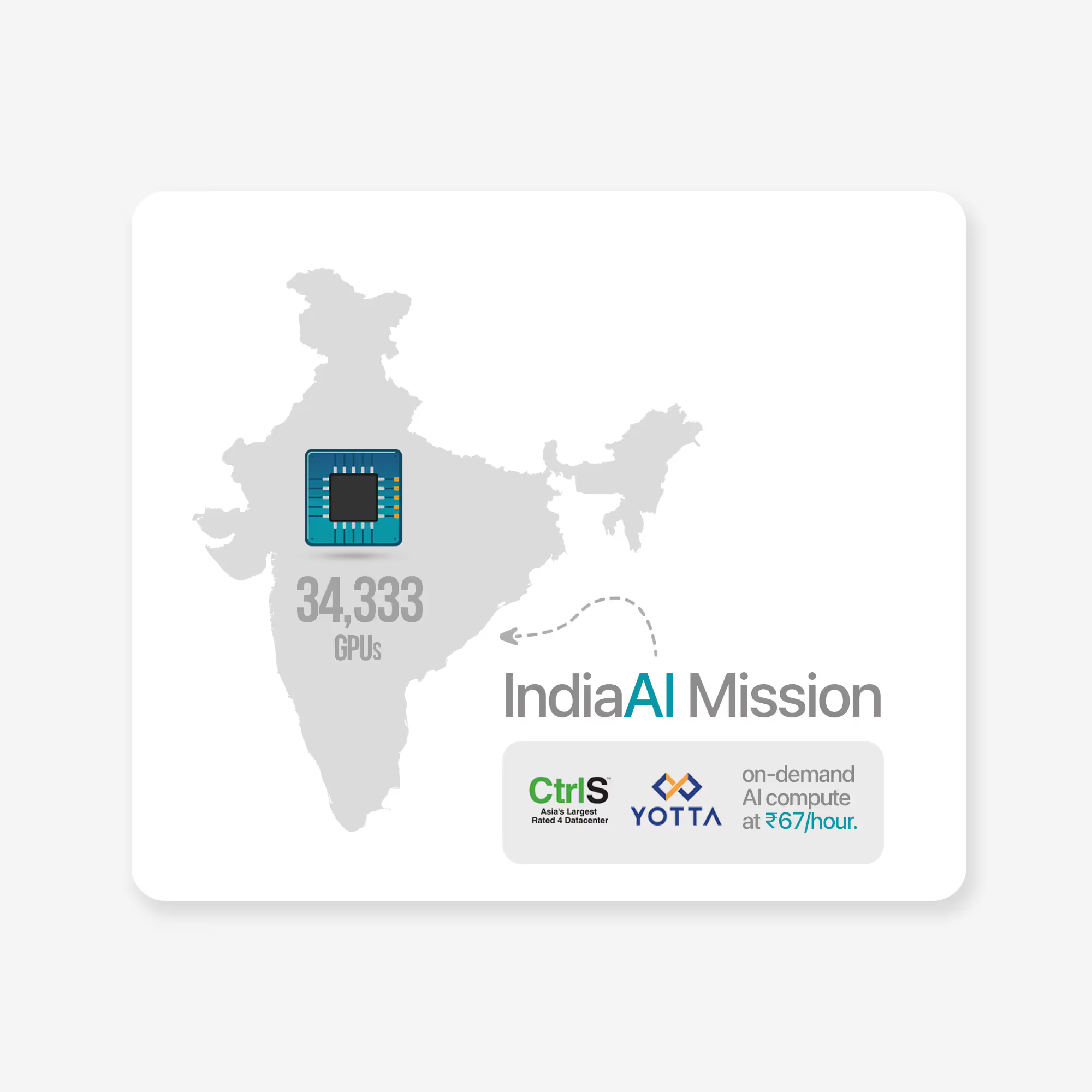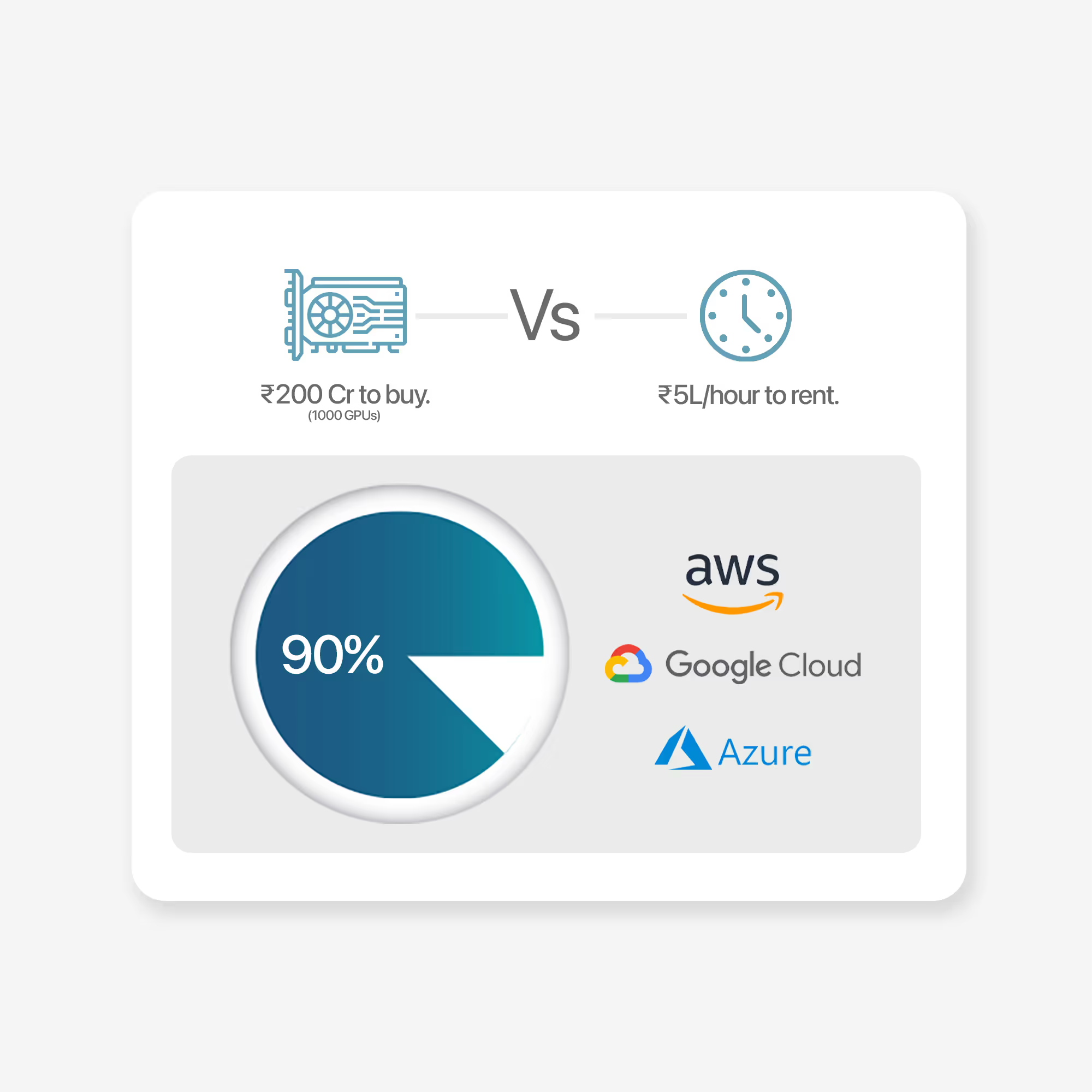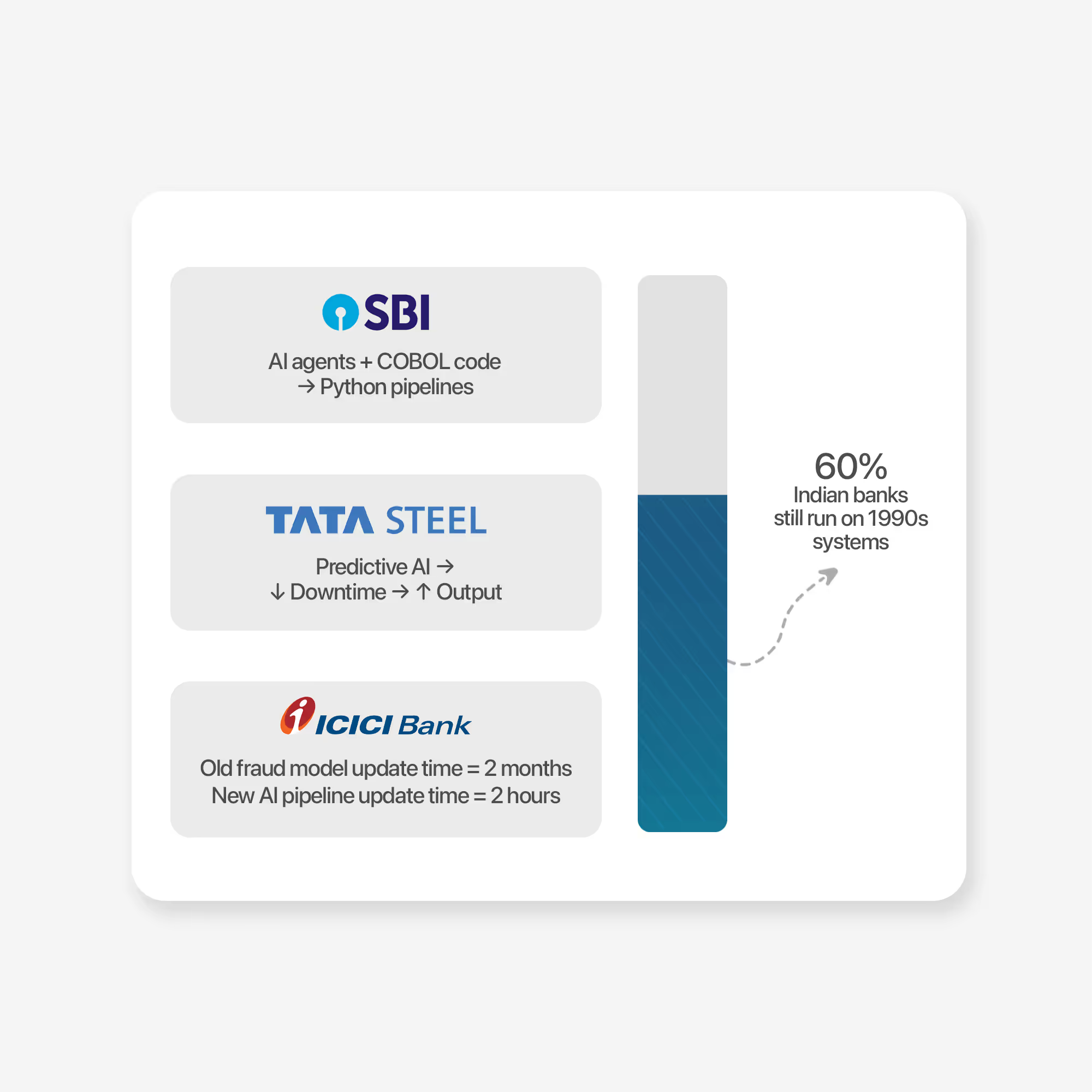
IIT Roorkee's Advanced PG Certificate in AI Engineering on Cloud and AIOps
Engineer AI Systems for Top Enterprises, with the Most Critical Skills of the Decade
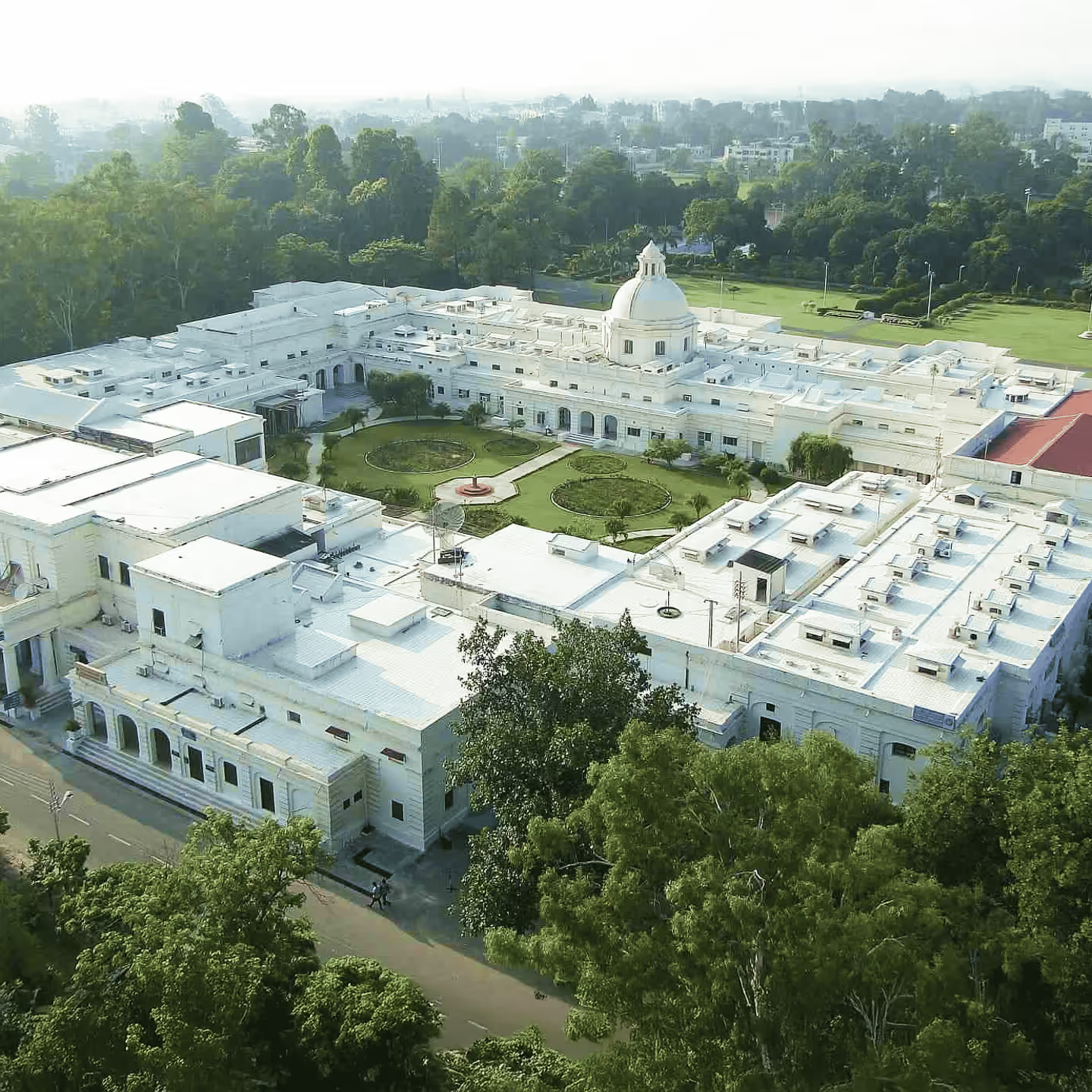
Start Date
December 13th, 2025
Duration
9 Months (132+ Hours)
Course Fee
₹1.25 Lakhs + GST
No. of seats left
19
Application Deadline
23rd November, 2025
Course Credits
18
Where the Real Hiring Is Happening
They are working at companies which are a dream for most





















India’s Only Certificate Covering the Full AI Engineering Lifecycle
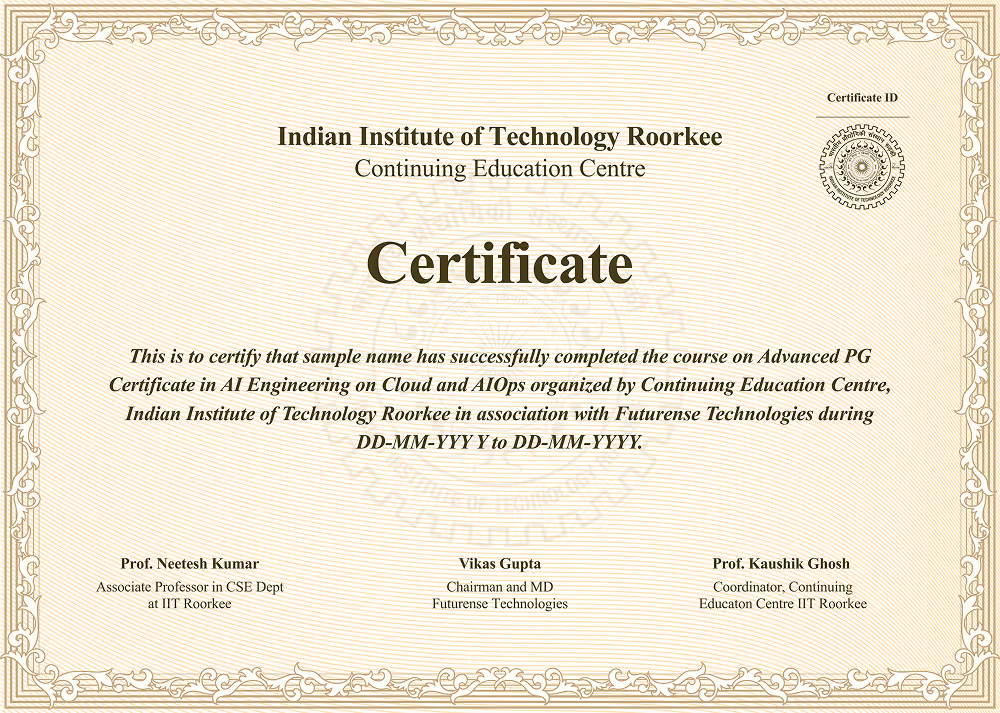

It’s time to convert prototypes into pipelines
Today, AI ≠ Just Model Building
→ It’s Build + Deploy + Scale + Maintain
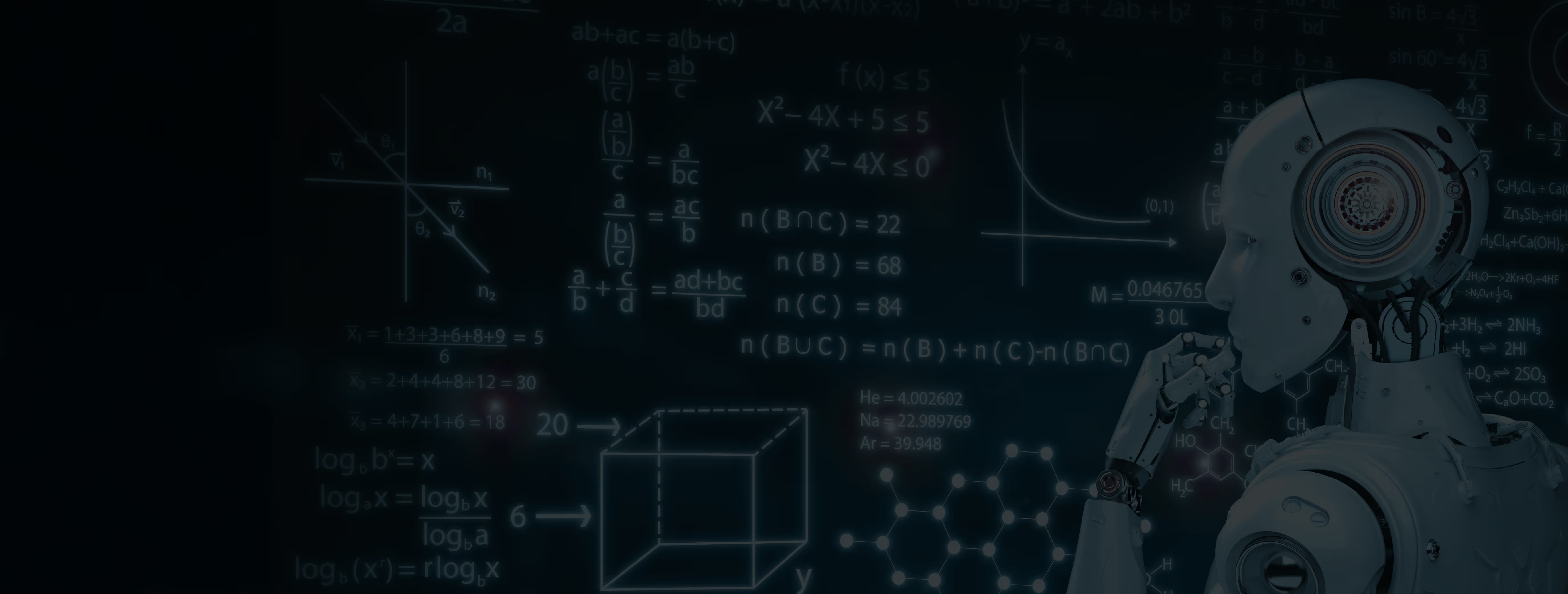
This Is Where the Real AI Hiring Begins
Legacy enterprises and GCCs are actively hiring engineers who can build elastic, cloud-native AI pipelines...Not just models, but systems that scale, adapt, and perform in production.
From Coder to System Thinker... This Is the Program
About IIT Roorkee
Founded in 1847, IIT Roorkee is one of India’s oldest and most prestigious institutions, with a legacy of academic leadership and technological innovation. As a pioneer in interdisciplinary education, IIT Roorkee has been at the forefront of engineering, data science, AI, and management education.
Its executive education programs are designed to equip working professionals with industry-aligned, future-forward skill sets, combining academic rigor with hands-on learning and strategic
thinking.
Coordinator, Continuing Education Centre (CEC)
Prof. Kaushik Ghosh is a Distinguished Academician and a Leading Researcher in Bioinorganic and Organometallic Chemistry. As the Coordinator of the Continuing Education Centre (CEC) at IIT Roorkee and a Professor (HAG) in Department of Chemistry and Joint Faculty Department of Bio Sciences and Bio Engineering IIT Roorkee, he has been at the forefront of interdisciplinary research, bridging fundamental science with real-world applications.
With expertise in Bioinorganic Chemistry, Catalysis, and Metal Complexes in Protein Aggregation, Prof. Ghosh has authored over 130 research papers, contributed to severalbook chapters, and secured multiple research grants. He is a Fellow of Royal Society of Chemistry (FRSC) and his contribution have been recognized with prestigious accolades, including the DST-SERC Fast Track Award for Young Scientists and the ICMR International Fellowship.
Program Director
Prof. Neetesh Kumar is an Associate Professor at IIT Roorkee and one of India’s leading voices in applied AI, cloud systems, and intelligent infrastructure. With multiple patents, global research citations, and editorial leadership at IEEE’s top AI journal, his work bridges the gap between academic depth and industry impact.With 180+ citations on intelligent traffic systems, multiple patents, and a position on the editorial board of IEEE’s top-ranked journals, he knows exactly where AI is headed: cloud-native, production-grade, real-world systems.That’s why this program isn’t academic theory, it’s a hands-on blueprint for the AI engineer India needs next. From deep research in parallel computing to running projects funded by DST, SERB, and CSIR, Prof. Neetesh brings the best of research, industry, and teaching into one classroom.He’s here not to teach code, but to train system thinkers who can lead India’s AI future.
What This Program Packs In
Everything You Need to Run Enterprise AI Systems…Start to Scale.
Full AI Engineering Lifecycle
India's Only Certification Covering the Full AI Engineering Lifecycle

Industry-Led Design
Designed by Industry Leaders Driving AI Hiring & Future Roadmaps
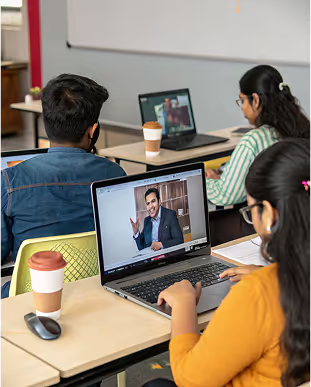
Advanced AI Technologies
Master GenAI, LLMs, MLOps, and Agentic AI Systems

Cloud-Native Focus
Built for Cloud-Native AI Deployment at Scale

Project-Based Learning
End-to-End Project-Based Learning with Real Enterprise Use Cases

Expert Faculty
132 Hours of Live Learning - 50% by Top IIT Faculty, 50% by Leading Industry Experts

Campus Experience
Optional 3-Day Campus Immersion at IIT Roorkee
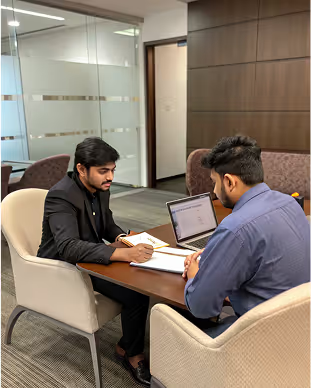
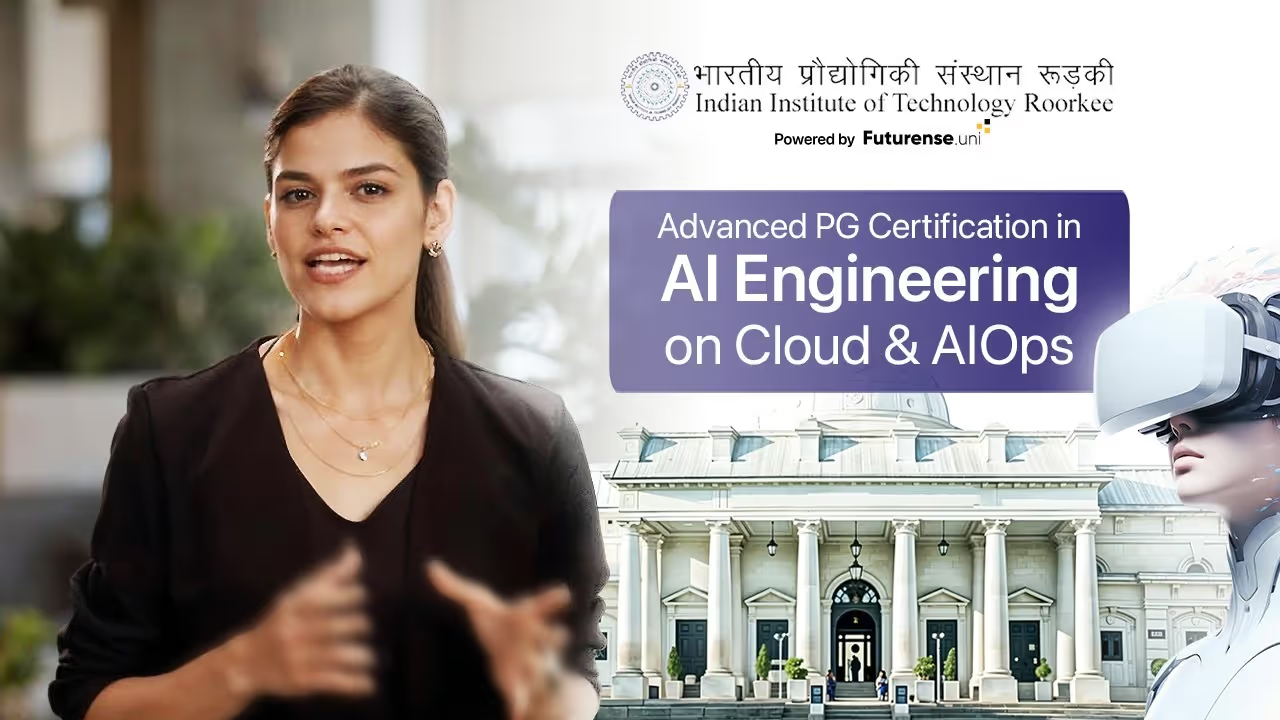
Designed by CXOs & Leaders at Top AI-First Companies
Module 1: Foundations of AI ML and Generative AI
Module 1: Foundations of AI ML and Generative AI
- Understanding Supervised Machine Learning, Unsupervised Machine Learning and Reinforcement Learning
- Data Manipulation for Machine Learning
- Exploratory Data Analysis for Machine Learning
- Essential Mathematics for Machine Learning and AIDefinition of Generative AI
- Generative AI Applications
- Definition of LLMs
Module 2: Deep dive into Machine Learning Algorithms
Module 2: Deep dive into Machine Learning Algorithms
- Regression Supervised Machine Learning
Linear Regression
Decision Tree Regressor
Random Forest Regressor
Overfitting, Underfitting and Regularization
- Classification Supervised Machine Learning
Logistic Regression
Decision Tree Classifier
Random Forest Classifier
- Unsupervised Machine Learning
KMeans Clustering
Hierarchical Clustering
Dimensionality Reduction
Anomaly detection
- Understanding Reinforcement learning: Basic concepts
(Action, reward, process), MPD, RL, DRL, DQN, etc.
- MLOps for Machine Learning model deployment
Module 3: Understanding Deep Learning
Module 3: Understanding Deep Learning
- Exploring Deep Learning
- Understanding Neural Networks with TensorFlow
- Deep dive into Neural Networks with TensorFlow
- Artificial Neural Networks (ANN)
- Convolutional Neural Networks (CNN)
- Object detection using YOLO framework
- Transfer Learning in CNN
- Recurrent Neural Networks (RNN) and LSTMs
Module 4: Exploring NLP
Module 4: Exploring NLP
- Architechtures of RNN - One to One, Many to Many, Many to One etc
- Understanding Text for NLP
- Tokenization, Stemming and Lemmatization, Stopwords and Keywords in NLP
- Text Vectorization using TF-IDF, Bag of Words and Word 2 Vec
- Use cases across domains in NLP
Module 5: Engaging with Generative AI
Module 5: Engaging with Generative AI
- How Generative AI works
- Text generation
- Image generation
- Audio generation and video generation
- Using Hugging face to access models for text generation, image generation
- GANs
- Types of GANs - ProGAN, SRGan, CycleGAN
- Auto Encoders, Variational Auto Encoders (VAEs), Diffusion Models
Module 6: Understanding LLMs
Module 6: Understanding LLMs
- Definition of LLMs
- LLM Use Cases
- Prompt Tuning
- Attention Mechanism
- Transformer Model and architecture
- Encoder-Decoder arrangements
- Train and Generate text using Encoder-decoder Architecture
- BERT for Transfer learning
- Leveraging multiple pretrained LLMs from Hugging Face
- Fine tuning LLMs
Module 7: GenAI Application Development Prompting Techniques
Module 7: GenAI Application Development Prompting Techniques
- Introduction to Prompt Engineering
- Successful and Unsuccessful prompts
- Types of Prompting
- Introduction to Open AI, GPT , Open AI Playground
- Cost & latency considerations when calling APIs (OpenAI, Azure, AWS).
- Multimodal prompting for GPT 4
- Image generation using Open AI DALLE 3
- Prompt evaluation
- Implementing Agents and Chains
- Implementing zero-shot-react, conversational-react agents with LangChain
- Open AI Function (Tool Integration)
- Testing various LLMs with Prompt Engineering
Module 8: Synthetic Data and Datasets for LLMs
Module 8: Synthetic Data and Datasets for LLMs
- Introduction to Synthetic Data
- Generating Synthetic Data
- Synthetic Data for LLMs
- Real-world Applications and Use Cases
- Hands-on generating and using Synthetic Data
Module 9: AI Embeddings & Retrieval
Module 9: AI Embeddings & Retrieval
- Understanding AI Embeddings
- Advanced Retrieval Techniques
- Hugging Face Embeddings
- Vector Databases in AI
- CRUD operations with Vector Databases
- RAG - Retreival Augmented Generation
- RAG solutions using Open AI models and Hugging face models
- Ethical Considerations in AI Embeddings
- Navigating AI Hallucinations, Drift, and Bias
- Embeddings in Real-world Applications
- Embeddings Optimization and Fine-tuning
- Embeddings Security and Privacy
- LLM Ops and model deployment best practices
Module 10: Understanding Agentic AI
Module 10: Understanding Agentic AI
- Agents, Agentic AI and Multi-Agent Systems
- Agent Definition & Autonomy
- Simple vs. Knowledge-Based Agents
- Reflex vs. Goal-Driven Agents
- Microsoft AutoGen
- Agent Architecture (Perception, Decision, Action)
- Integrating Knowledge Bases (RAG, Domain Data)
- Measuring Performance (Success Rate, Resource Usage)
- Hierarchical Agent Planning
- Multi-Step Reasoning with LLM
- Memory & Long-Term Context
- Integrating Retrieval Augmentation in Agent Workflows
- Domain-Specific Knowledge & Dynamic Prompting
Module 11: Exploring Cloud Ecosystems
Module 11: Exploring Cloud Ecosystems
- Cloud Ecosystems
- Introduction to Cloud Ecosystem
- Definitions
- Cloud characteristics
- Deployment models
- Leading Service providers (AWS, Google, Azure, etc.)
- Comparing AWS, Azure, and GCP core services for compute, storage, and AI/ML.
- Data Centres and their components
- Service (SaaS, IaaS, PaaS)
- Issues & Challenges
Module 12: Advancement in Hypervisors
Module 12: Advancement in Hypervisors
- Understanding hypervisors
- Reference model
- Virtualisation characteristics
- Principles of hypervisor design interfaces
- Types of hypervisors (type-1 and type-2)
- Differences between Type-1 and Type-2 hypervisors.
- Design methods of hypervisors (full virtualization, para virtualization, and hardware-assisted virtualization)
- Memory Virtualisation
- I/O virtualisation
- OS virtualization
- Comparative Analysis of hypervisors
- Understanding performance, requirements, and bottleneck
Module 13: Container Orchestration
Module 13: Container Orchestration
- Understanding LLM Deployment Architectures
- Containerizing LLM Inference Services (e.g., using FastAPI + Docker)
- Managing GPU Workloads in Kubernetes
- Scaling LLM APIs with Kubernetes and Istio
- Optimizing Latency and Throughput for LLM Containers
- Secure Access and Rate Limiting for AI APIs
- CI/CD for LLM-Powered Microservices
- Monitoring and Logging for LLM Containers
- Model Versioning and Rollbacks
- Cost Optimization Strategies for LLM Inference in Production
Module 14: Cloud Security & Resilience
Module 14: Cloud Security & Resilience
- Infrastructure security: Network-level security
- Host-level security
- Application-level security
- Data security and storage: Data privacy and security issues
- Jurisdictional issues raised by data location
- Identity and access management
- Access control
- IAM, Key Management Services, and zero-trust architecture trust, reputation, risk authentication in cloud computing
- Client access in the cloud
- Cloud contracting model
- Commercial and business considerations
Module 15: Understanding Cloud in context of Gen AI and LLMs
Module 15: Understanding Cloud in context of Gen AI and LLMs
- EC2 Deep Dive and AMIs
- EBS vs S3 vs EFS – Storage Solutions
- Load Balancing and Auto Scaling Basics
- Intro to Serverless: AWS Lambda
- Using AWS Bedrock for GenAI (including foundation models)
- Deploying Open-Source LLMs on EC2/EKS
- Fine-Tuning and Inference
- Pipelines on Cloud
- Cost & Performance
- Considerations for LLM Workloads
- SageMaker Pipelines for Model Training and Inference
- Model Versioning, A/B Testing, and Rollbacks
- Security and Compliance for GenAI in Production
Total
Total
Total Duration - 132 Hours
Hours trained by IIT - 66 Hours
Hours trained by Futurense - 66 Hours
Before the Job Offer, the Job Experience
Ideal For
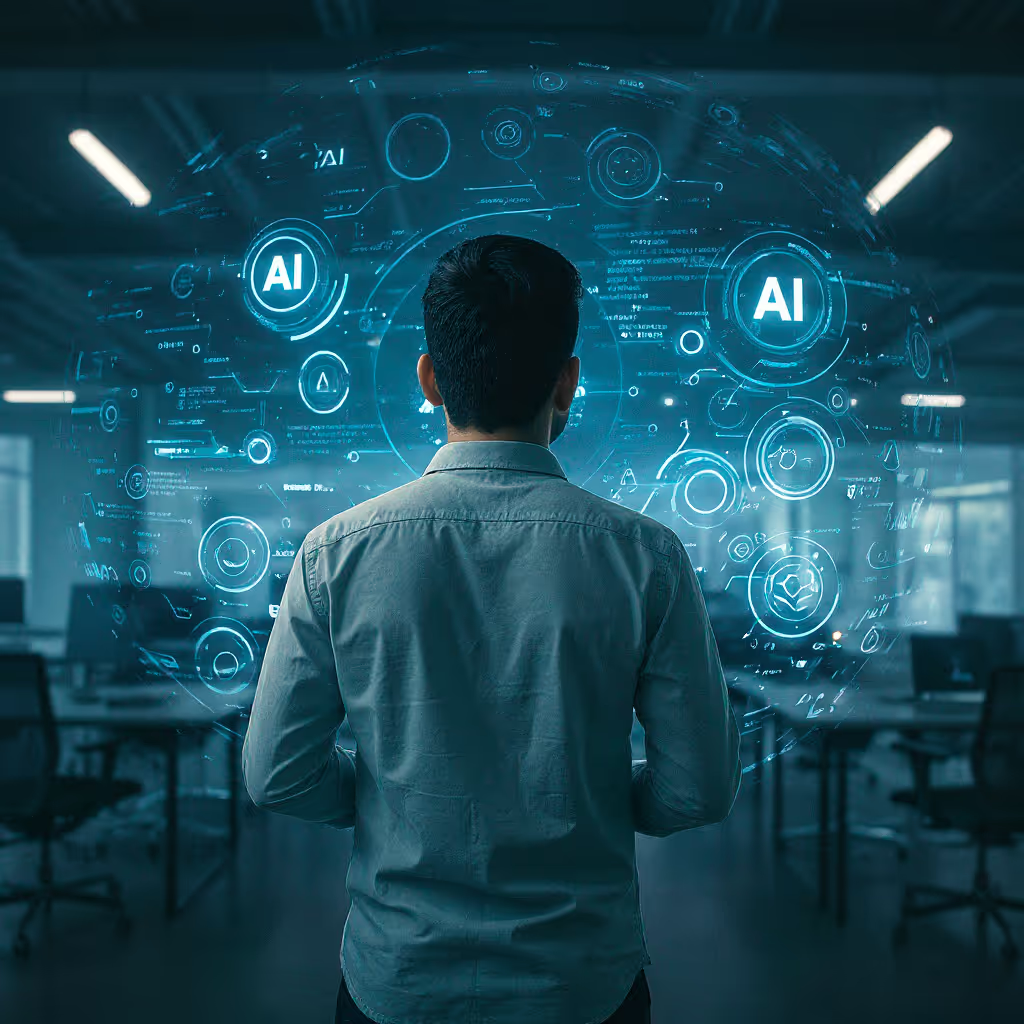






Is this for you?
Educational Qualification
3–4 year STEM degree (B.Tech, B.Sc, MCA, etc.)
Work Experience
Preferred 1+ years of industry experience; however, qualified freshers who have prior courses done in AI or ML may apply
Prerequisites
Programming experience required, via academics, work, or projects
Minimum Marks
50% in graduation
Screening
Mandatory pre-screening test to assess readiness for the program

Application Process

Step 1
Submit Your Application Online
Submit your application form with academic and professional details.
Step 2
Take the Pre-Screening Test
Attempt a short test to assess your foundational understanding of AI, cloud, and programming.
Step 3
Profile Review & Shortlisting
Your application and test results will be reviewed by the admissions panel.
Step 4
Interview (If Applicable)
Shortlisted candidates may be invited for a 1:1 interview to evaluate fit and motivation
Step 5
Receive Admission Offer
Selected candidates will receive an official offer letter from the admissions team
Step 6
Confirm Your Seat
Block your seat by completing the enrollment process and payment.
Step 7
Graduate with IIT Roorkee Certification
Upon successful completion of the 9-month journey, receive your Advanced Certification in AI Engineering and AIOps from IIT Roorkee

From Code to Cloud: What You’ll Truly Master Here
Build full-stack GenAI systems
Master the complete development cycle of GenAI applications using LLMs, LangChain, RAG, and sophisticated agent orchestration - moving beyond basic notebooks to production-ready APIs.
Own the AI engineering lifecycle
Master the complete spectrum from foundational machine learning to advanced multimodal GenAI and agentic architectures, becoming a full-stack AI engineering professional.
Design enterprise-ready agents
Create automated workflow solutions using cutting-edge frameworks including AutoGen, Crew AI, and n8n, bringing true intelligence to business processes.
Navigate cloud platforms
Gain expertise in architecting, containerizing, and deploying AI solutions across major cloud platforms - AWS, Azure, and GCP.
Secure and scale AI
Implement robust systems with rollback capabilities, comprehensive observability, security measures, and compliance protocols for enterprise-grade AI deployments.
Master AI pipelines
Learn to deploy, version, monitor, and retrain models using industry-standard tools like Docker, Kubernetes, and advanced MLOps workflows for seamless production environments.
While mastering 20+ tools

















Already in AI or Data Science? This Is How You Level Up
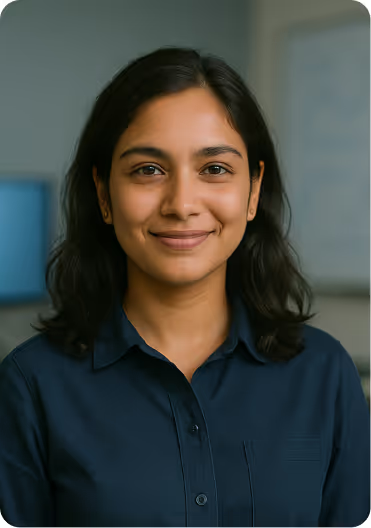
Role Now
Data Scientist
Salary Today
4-12 LPA
Role Upgraded
AI Engineer with GenAI specialization
Earning Potential
18 - 35 LPA
Current Skills
Python, R, SQL, Basic Statistics, Data Visualization
Upgraded Skills (From IIT Roorkee Program)
LLM fine-tuning, Prompt Engineering, LangChain, AutoGen, CrewAI, Agentic Workflow Design, RAG, Vector Databases





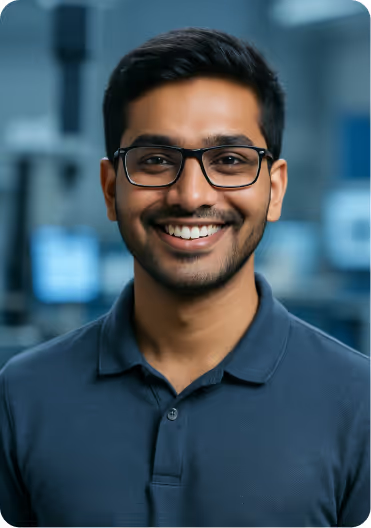
Role Now
Machine Learning Engineer
Salary Today
5 - 10 LPA
Role Upgraded
Generative AI Engineer
Earning Potential
20 - 40 LPA
Current Skills
Python, Basic TensorFlow/PyTorch, Simple Model Training
Upgraded Skills (From IIT Roorkee Program)
Advanced GenAI, LLMs (GPT-4, Cohere), Hugging Face, Diffusion Models, GANs, VAEs, Cloud ML Platforms (AWS SageMaker, Azure ML)





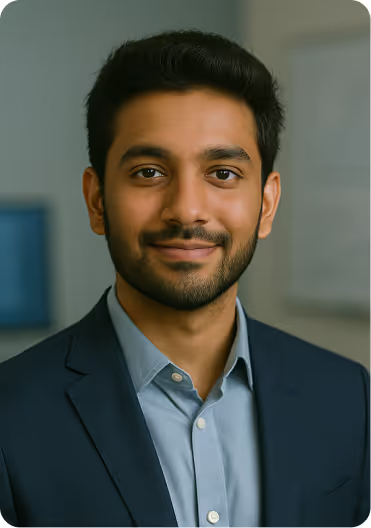
Role Now
Data Engineer
Salary Today
4 -8 LPA
Role Upgraded
AI Data Engineer
Earning Potential
15 - 25 LPA
Current Skills
SQL, Basic ETL, Python, Simple Data Pipelines
Upgraded Skills (From IIT Roorkee Program)
Unstructured Data Processing, AI-driven ETL, Real-time Data Streaming, Cloud-native Pipelines (AWS, Azure, GCP), Vector Databases





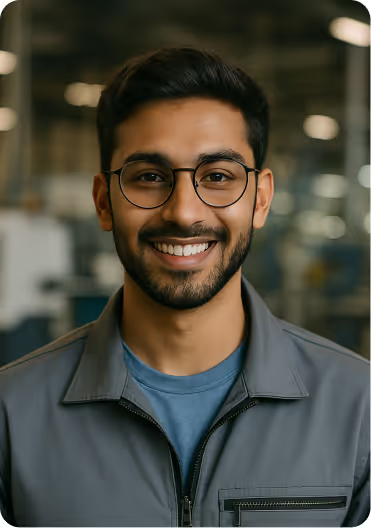
Role Now
MLOps Engineer
Salary Today
6 - 10 LPA
Role Upgraded
AI Systems Engineer with AIOps
Earning Potential
22 - 45 LPA
Current Skills
Basic Docker, Simple CI/CD, Model Deployment
Upgraded Skills (From IIT Roorkee Program)
AIOps, Multi-agent Orchestration, Advanced MLOps, Kubernetes, Prometheus, Grafana, Seldon, Evidently AI, Cloud Security






Role Now
Data Analyst
Salary Today
4 - 8 LPA
Role Upgraded
AI Product Analyst
Earning Potential
18 - 30 LPA
Current Skills
SQL, Excel, Basic Python, Tableau/PowerBI
Upgraded Skills (From IIT Roorkee Program)
Comprehensive AI/ML understanding, Business Impact Analysis, Basic GenAI applications, Data-driven insights with AI tools






Role Now
Business Intelligence Developer
Salary Today
4 - 7 LPA
Role Upgraded
Cloud AI Solutions Developer
Earning Potential
20 - 35 LPA
Current Skills
SQL, Basic ETL, Power BI/Tableau, Data Visualization
Upgraded Skills (From IIT Roorkee Program)
AI/ML integration, Cloud platforms, Basic system design, Performance optimization, Serverless AI





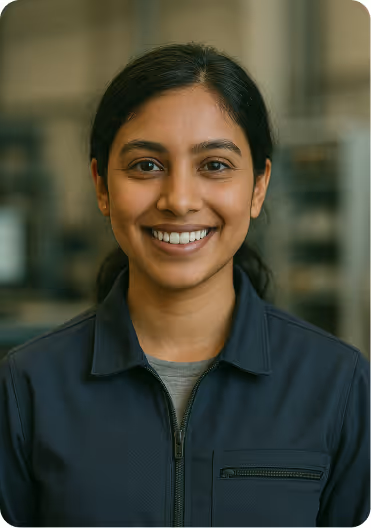
Role Now
AI Engineer
Salary Today
5 - 12 LPA
Role Upgraded
Agentic AI Engineer
Earning Potential
25 - 50 LPA
Current Skills
Python, Basic ML Algorithms, Simple Neural Networks
Upgraded Skills (From IIT Roorkee Program)
Advanced Agentic AI, Multi-agent Systems, Semantic Kernel, Knowledge Base Integration, Production AI Deployment





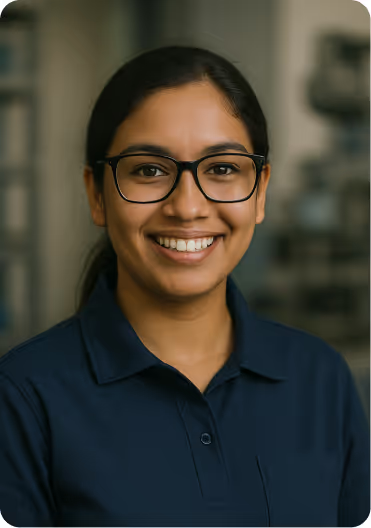
Role Now
Cloud Engineer
Salary Today
4 - 8 LPA
Role Upgraded
Cloud AI Engineer
Earning Potential
25 - 45 LPA
Current Skills
Basic AWS/Azure, Simple Deployments, Basic Networking
Upgraded Skills (From IIT Roorkee Program)
Advanced Cloud AI Services, Serverless AI, Auto-scaling ML Infrastructure, Cost Optimization, AI-native cloud architecture





Haven’t Gotten Your Hands Dirty Yet? There’s Never Been a Better Time

Job Role
AI Engineer
Starting Salary (₹ LPA)
12-30 LPA
Skills Required
Advanced GenAI, LLMs (GPT-4, Cohere), Hugging Face, Diffusion Models, GANs, VAEs, Cloud ML Platforms (AWS SageMaker, Azure ML)
Earning Potential
18 - 35 LPA






Job Role
Machine Learning Engineer
Starting Salary (₹ LPA)
12-28 LPA
Skills Required
Python, Basic TensorFlow/PyTorch, Model Training, Data Preprocessing, Feature Engineering, Model Evaluation
Earning Potential
18 - 35 LPA






Job Role
Data Scientist
Starting Salary (₹ LPA)
12-22 LPA
Skills Required
Statistical Analysis, Python, R, SQL, Data Visualization, Machine Learning fundamentals
Earning Potential
18 - 35 LPA






Job Role
AIOps Engineer
Starting Salary (₹ LPA)
15-35 LPA
Skills Required
Basic Docker, Simple CI/CD, Model Deployment, Kubernetes basics, Prometheus, Grafana, Cloud platforms
Earning Potential
18 - 35 LPA






Job Role
Data Analyst
Starting Salary (₹ LPA)
12-18 LPA
Skills Required
SQL, Excel, Basic Python, Tableau/PowerBI, Statistical Analysis, Data Visualization
Earning Potential
18 - 35 LPA






Job Role
AI Product Analyst
Starting Salary (₹ LPA)
15-30 LPA
Skills Required
Comprehensive AI/ML understanding, Business Impact Analysis, Data-driven insights, Product Management basics
Earning Potential
18 - 35 LPA






Job Role
Cloud AI Engineer
Starting Salary (₹ LPA)
18-35 LPA
Skills Required
Basic AWS/Azure, Simple Deployments, Cloud Security, Serverless AI, Auto-scaling ML Infrastructure
Earning Potential
18 - 35 LPA






Job Role
Generative AI Engineer
Starting Salary (₹ LPA)
12-30 LPA
Skills Required
Advanced GenAI, LLMs (GPT-4, Cohere), Hugging Face, Diffusion Models, GANs, VAEs, Cloud ML Platforms (AWS SageMaker, Azure ML)
Earning Potential
18 - 35 LPA





Step Into the AI Roles Enterprises Are Hiring For
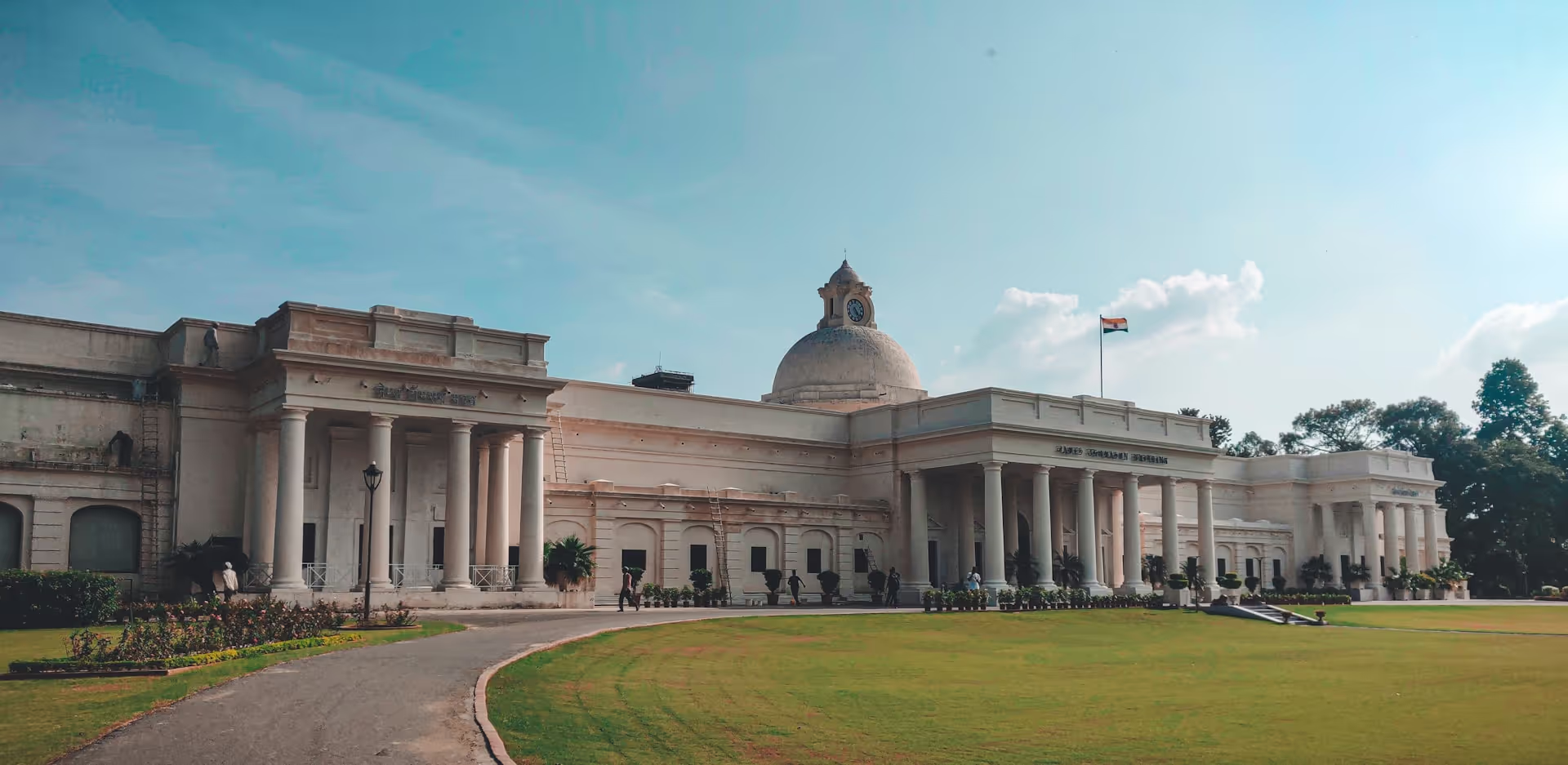
Led by the Futurense Leadership Council (FLC)
Get industry insights and mentorship directly from an exclusive community of AI experts and CXOs from MAANG companies and Fortune 500s.
A V Rahul
Director, Analytics, - Barracuda

Aditya Khandekar
President, Corridor Platforms
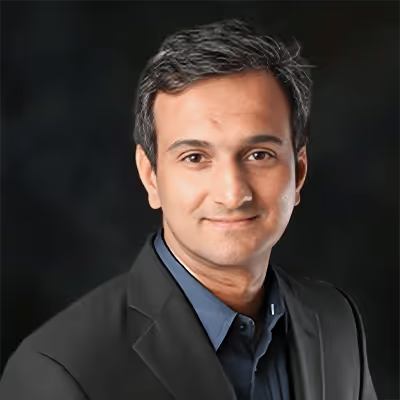
Akshay Kumar
Research & Analytics Leader
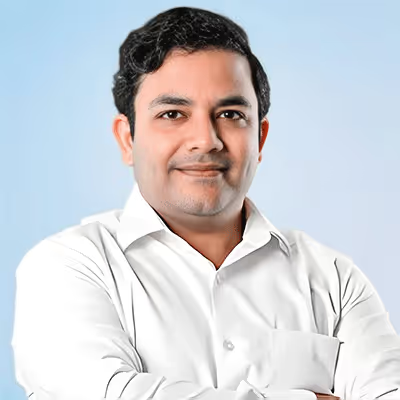
Alok Tiwari
Director of Analytics, Junglee Games

Anand Das
Chief Digital & AI Officer, TVS Motors

Aneel kumar
Global Chapter Leader - ICSS, DD&T

Anirban Nandi
Head of AI Products & Analytics (Vice President), Rakuten India
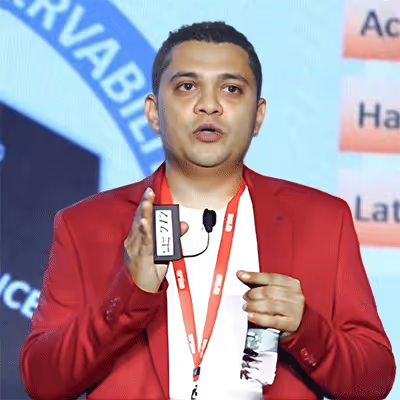
Ankit Mogra
Director – Insights & Analytics, Ather Energy

Anupam Gupta
Independent Consultant – AI/ML Product Development, Amplify Health
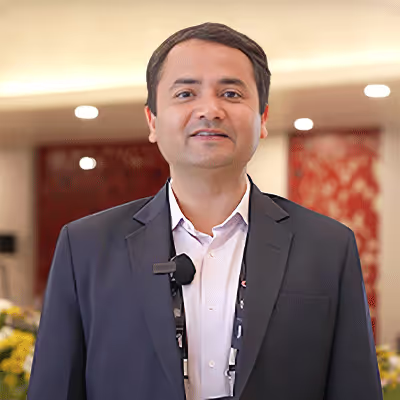
Arpit Agarwal
Data Science Manager, Google

Arvind Balasundram
Executive Director, Commercial Insights & Analytics

Ashish Dabas
Vice President, Capital One
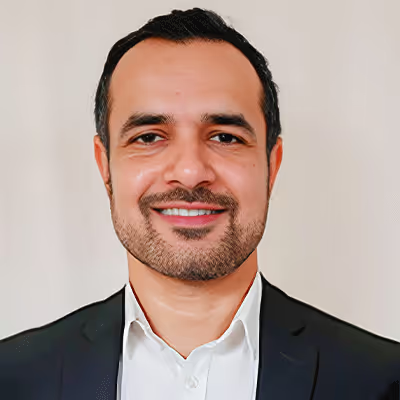
Bhairav M
Senior Manager Data Science and Product Management
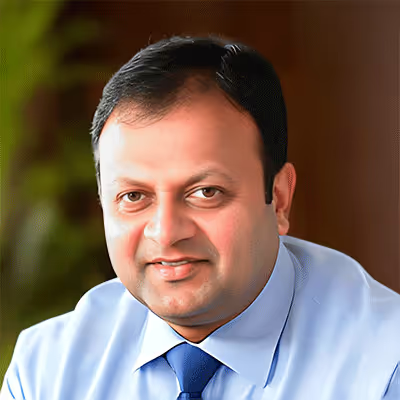
Bhargab Dutta
Chief Digital Officer, Centuryply
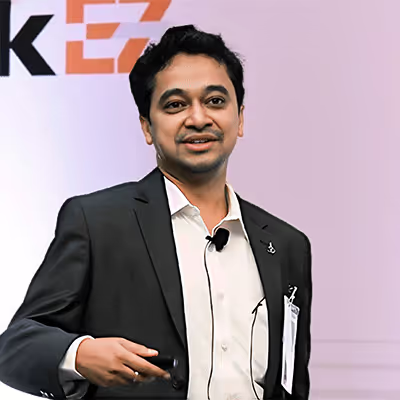
Deepa Mahesh
Head of Strategy & Operations, Board Member

Divesh Singla
SVP, Global Operations Services and Managing Director, India & Philippines, SignantHealth

Indrani Goswami
Director of Analytics, NYKAA

Ishu Jain
Head of Analytics
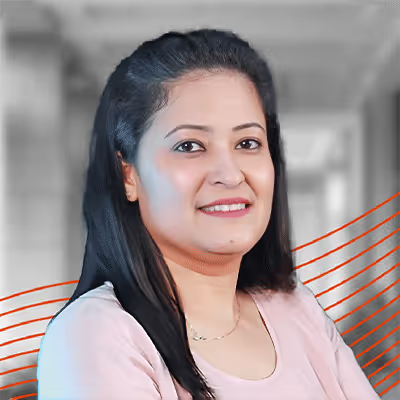
Kaushik Das
Managing Director, JCPenney

Krithika Muthukrishnan
Chief Data Science Officer, Scripbox

Madhu Hosadurga
Global Vice President, Enterprise AI, Schneider Electric

Madhurima Agarwal
Managing Director - Microsoft for Startups

Monica S Pirgal
Chief Executive Officer, Bhartiya Converge

Muthumari S
Global Head of Data & AI Studio
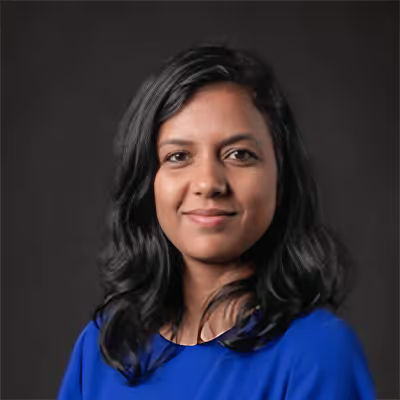
Nithya Subramanian
Senior Director Data & AI COE - Best Buy
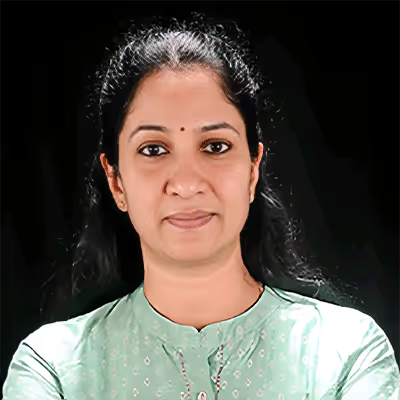
Nitin Srivastava
Global Head of Data and Analytics, Dr. Martens plc
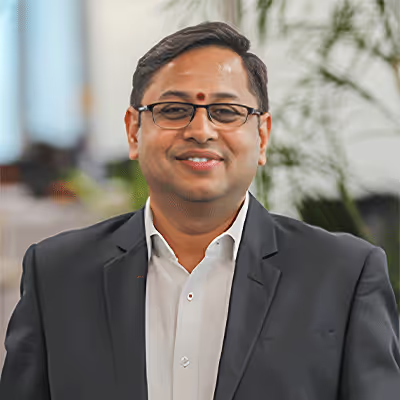
Pankaj Rai
Group Chief Data and Analytics Officer, Aditya Birla Group

Pankaj Srivastava
Partner, PwC

Praveen Sathyadev
Head - EU/UK Business Growth (VP) - Analytics, Insights and AI, Course5i

Ruchika Singh
Director, Data Science & Insights, Spotify
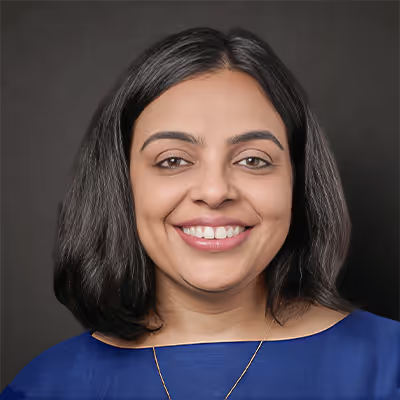
Satyakam Mohanty
Founder & Managing Partner, Wyser

Saurabh Agarwal
Chief Executive Officer

Saurabh Kumar
Director - Data Engineering

Sharmistha Chaterjee
Executive Engineering Manager - Head of Software and Systems Engineering, Commonwealth Bank
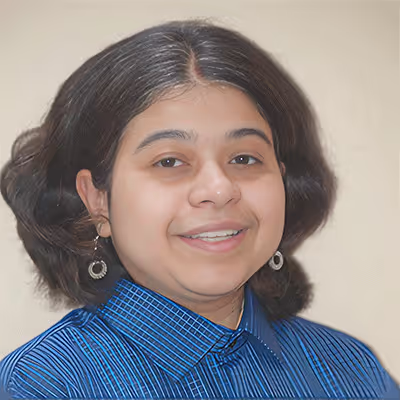
Shirsha Ray Chaudhuri
Director of Engineering
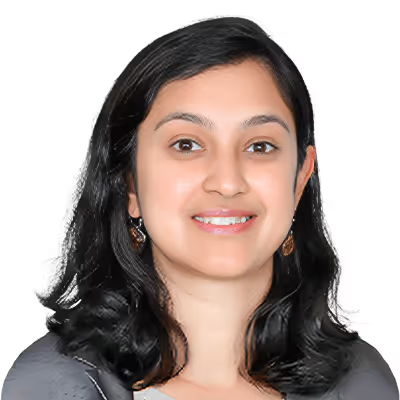
Srini Oduru
Head of IT Delivery and Operations, Cervello India

Sulabh Jain
Chief Analytics Officer
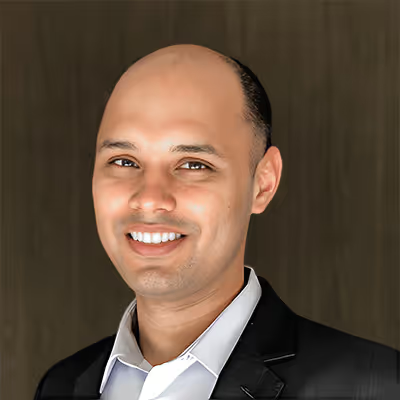
Sumon Mal
Head of Backend Engineering, Sony LIV

Supria Dhanda
Co-Founder & Managing Partner, Wyser
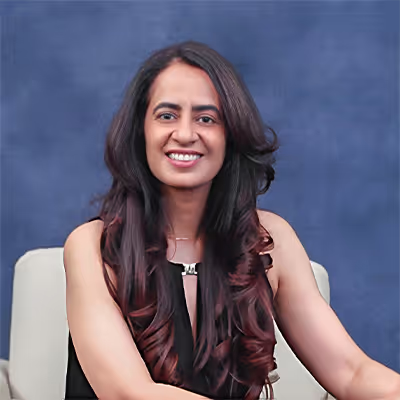
Swati Jain
Partner - Digital, AI & Analytics, Deloitte

Tushar Chahal
Chief Technology Officer, Numisma Bank
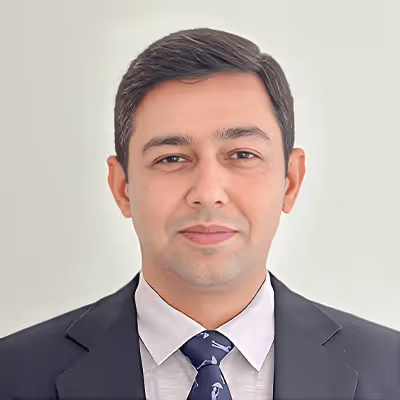
Tushar Sahu
Director Engineering, Google
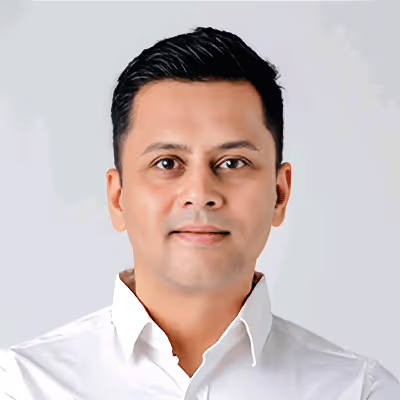
Vidhi Chugh
AI Executive | Microsoft MVP

Vishal Nagpal
Director of Data and AI at Best Buy

Vishal Nagpal
Director of Data and AI at Best Buy

Vidhi Chugh
AI Executive | Microsoft MVP

Tushar Sahu
Director Engineering, Google

Tushar Chahal
Chief Technology Officer, Numisma Bank

Swati Jain
Partner - Digital, AI & Analytics, Deloitte

Supria Dhanda
Co-Founder & Managing Partner, Wyser

Sumon Mal
Head of Backend Engineering, Sony LIV

Sulabh Jain
Chief Analytics Officer

Srini Oduru
Head of IT Delivery and Operations, Cervello India

Shirsha Ray Chaudhuri
Director of Engineering

Sharmistha Chaterjee
Executive Engineering Manager - Head of Software and Systems Engineering, Commonwealth Bank

Saurabh Kumar
Director - Data Engineering

Saurabh Agarwal
Chief Executive Officer

Satyakam Mohanty
Founder & Managing Partner, Wyser

Ruchika Singh
Director, Data Science & Insights, Spotify

Praveen Sathyadev
Head - EU/UK Business Growth (VP) - Analytics, Insights and AI, Course5i

Pankaj Srivastava
Partner, PwC

Pankaj Rai
Group Chief Data and Analytics Officer, Aditya Birla Group

Nitin Srivastava
Global Head of Data and Analytics, Dr. Martens plc

Nithya Subramanian
Senior Director Data & AI COE - Best Buy

Muthumari S
Global Head of Data & AI Studio

Monica S Pirgal
Chief Executive Officer, Bhartiya Converge

Madhurima Agarwal
Managing Director - Microsoft for Startups

Madhu Hosadurga
Global Vice President, Enterprise AI, Schneider Electric

Krithika Muthukrishnan
Chief Data Science Officer, Scripbox

Kaushik Das
Managing Director, JCPenney

Ishu Jain
Head of Analytics

Indrani Goswami
Director of Analytics, NYKAA

Divesh Singla
SVP, Global Operations Services and Managing Director, India & Philippines, SignantHealth

Deepa Mahesh
Head of Strategy & Operations, Board Member

Bhargab Dutta
Chief Digital Officer, Centuryply

Bhairav M
Senior Manager Data Science and Product Management

Ashish Dabas
Vice President, Capital One

Arvind Balasundram
Executive Director, Commercial Insights & Analytics

Arpit Agarwal
Data Science Manager, Google

Anupam Gupta
Independent Consultant – AI/ML Product Development, Amplify Health

Ankit Mogra
Director – Insights & Analytics, Ather Energy

Anirban Nandi
Head of AI Products & Analytics (Vice President), Rakuten India

Aneel kumar
Global Chapter Leader - ICSS, DD&T

Anand Das
Chief Digital & AI Officer, TVS Motors

Alok Tiwari
Director of Analytics, Junglee Games

Akshay Kumar
Research & Analytics Leader

Aditya Khandekar
President, Corridor Platforms

A V Rahul
Director, Analytics, - Barracuda


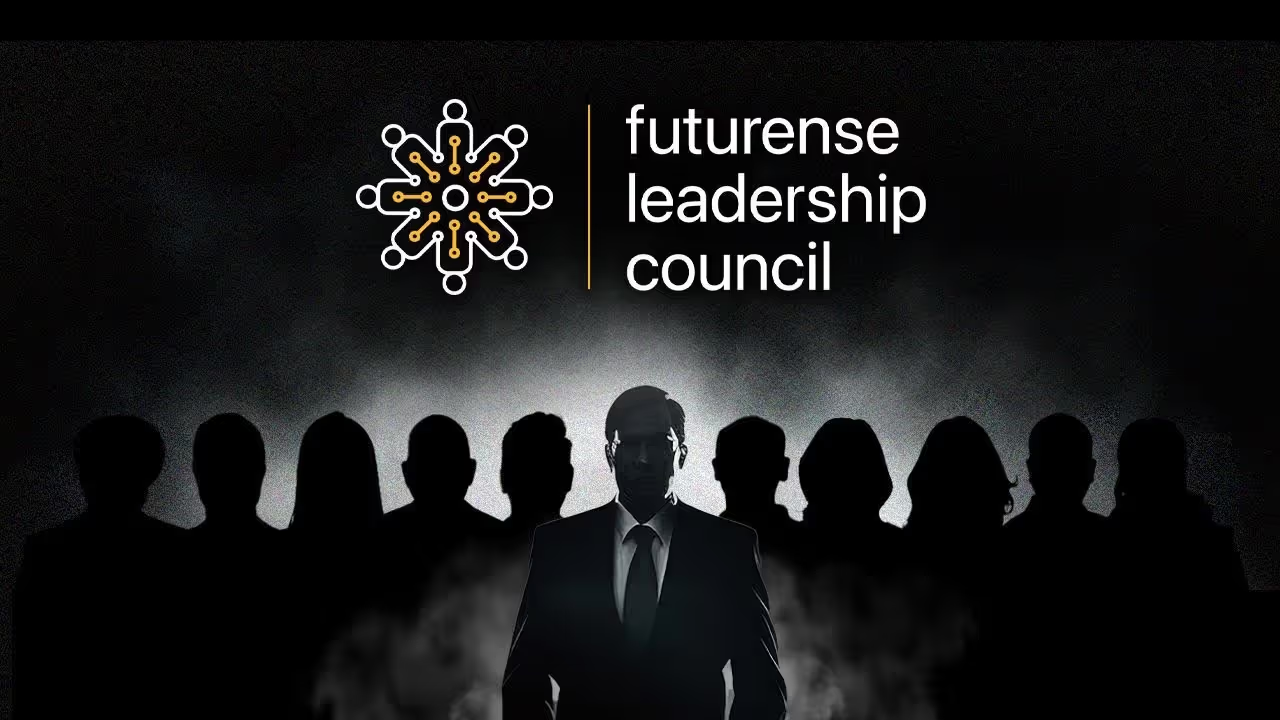
Frequently Asked Questions
We know you might have some questions before getting started in our platform
What is the name of the certificate program, and which IIT offers it?
The program is called "Advanced PG Certificate Program in AI Engineering on Cloud and AIOps".
It is offered by , one of India’s top-tier IITs.
What are the eligibility criteria for this program, and who should ideally enroll?
This program is ideal for candidates with a solid foundation in mathematics and programming, along with a strong interest in technology. Applicants must meet the following eligibility criteria:
1. A 3 to 4-year undergraduate degree in a STEM field (such as B.Sc or B.Tech)
2. Exposure to programming and computing, either through academic coursework or professional/project experience
3. A minimum of 50% aggregate marks in their undergraduate program
4. While 1 year of work experience is preferred, well-qualified fresh graduates are also encouraged to apply
How can I apply to the PG Certificate Program in AI Engineering on Cloud and AIOps
Click on Apply now and fill form.
When will the application process to the program start?
The application process for CEC, IIT Roorkee’s PG Certificate Program has already begun.
What is the program's fee, and what financing options are available?
The program fee is ₹1.25 lakhs + 18% GST.
Financial options include loans available for 6-month and 12-month terms with a minimal interest rate.
Is there a selection process?
Yes. Admission to the program requires clearing a pre-screening exam and meeting the eligibility criteria.
What are the documents to be submitted for application?
While the exact list is not provided for this program, similar IIT Roorkee programs typically require:
1. Application form
2. ID proof
3. Educational certificates (Class 10th, 12th, Graduation)
4. Work experience certificates (if applicable)
5. Passport-size photograph
Note: The same may apply unless otherwise stated
Will there be any pre-screen exams for enrolling in the Program?
Yes. The CyberScreener (IGT) is a 2-hour readiness test with MCQs and coding tasks.
Should I have experience in coding to qualify the pre-screening exam?
No. Programming knowledge is not mandatory, thought having programming knowledge is beneficial. Futurense provides a Bridge Course covering Python basics, prompt engineering, and AI tool usage to help bridge the gap before the actual course commencement
How is the teaching format structured for this hybrid program?
1. Live online weekend classes: 3 hours each on Saturday and Sunday. (Final schedule will be shared based on faculty availability and discretion)
2. Includes labs, hands-on tools, real-world cybersecurity exercises.
3. 2–3 days of dedicated CISSP exam preparation workshops, conducted online by industry mentors
4. Optional 3-day campus immersion at IIT Roorkee.
5. Curriculum is aligned with CISSP and CEH competencies, quipping learners for global certifications.
What if I can t take 3-day of leave at a stretch from my office for the Campus Immersion?
The Campus immersion is optional, so attendance is not mandatory.
Will there be any additional cost for attending the optional 3-day CEC IITRoorkee campus immersion?
Yes. The campus immersion cost is ₹10,000 + taxes.
Will hostel accommodation be provided for outstation candidates from different states during immersion?
Hostel accommodation may be provided either on campus or off campus, depending on the availability of facilities.
How do industry leaders and the Futurense Leadership Council (FLC) contribute to the program?
Industry experts from Google, Microsoft, Infosys, Lenskart, AmEx, and more teach live sessions.
The Futurense Leadership Council offers:
1. Masterclasses
2. Mentorship
3. Real-world MarTech case walkthroughs
50% of sessions are taught by industry faculty, ensuring applied learning.
Why is agentic AI called the next big thing in AI technology?
Agentic AI allows systems to make decisions, learn from feedback, and autonomously execute tasks, which is critical for real time security, dynamic response, and continues lerning in cybersecurity operations.
What makes this certificate program particularly suitable for engineers and tech professionals?
While designed primarily for marketers, it is also suitable for tech professionals as it includes:
1. Full-stack security operations.
2. Prompt engineering.
3. Cloud and container security.
4. System-level automation usin Python, SOAR, and SIEM tools.
Is this course suitable for non technical professionals?
The curriculum requires significant technical engagement and is best suited for individuals with some technical aptitude or willingness to develop programming skills. However, the progressive structure allows determined learners to build competency gradually.
What is the difference between traditional AI, generative AI, and agentic AI?
1. Traditional AI: Uses structured data for fixed tasks.
2. Generative AI: Creates text, images, code (e.g., ChatGPT, Claude)
3. Agentic AI: Autonomous agents that make decisions, adapt, and operate independently.
How are agentic AI systems used across industries like healthcare, manufacturing, and telecom?
1. Healthcare: Automates diagnosis and treatment recommendations.
2. Manufacturing: Enables process optimization and predictive maintenance.
3. Telecom: Powers AI-driven customer support and network optimization.
How does having skills in generative AI and agentic AI impact salary and job prospects?
Professionals with GenAI and Agentic AI skills see:
1. 40–60% salary hikes
2. Entry-level packages from ₹6–12 LPA
3. Roles paying up to 35+LPA in metro cities and GCCs
Source: Salary insights referenced from AnalytixLabs 2025 AI Salary Report and Boston Institute of Analytics 2025 Industry Trends.
How does this program align with the rapid adoption of generative AI by companies like Infosys, TCS, and startups?
1. Companies are establishing GenAI labs and AI agents in both metros and tier-2 cities
2. The program prepares professionals to meet rising demand for AI-literate marketers in sectors like e-commerce, SaaS, fintech, and edtech
Why is this program considered unique compared to other certifications in AI?
First program for AI Engineering & AI Ops tailored for developers, data engineers, and MLOps professionals with a strong focus on production-ready AI like MLOps, RAG and secure cloud deployment. The curriculum is taught by IIT Faculty and industry experts with a hands-on, project based
learning approach where students will get a chance to master 15+ modern tools (LangChain, LLaMA Index, n8n, Crew AI, Kubernetes, etc.).
What is the projected market value of generative AI by 2032, and what percentage of enterprises are prioritizing its adoption?
1. Projected market value: $1.3 trillion by 2032
2. 74% of enterprises are prioritizing GenAI adoption (Gartner, 2024)
Source: Figures based on projections from Bloomberg Intelligence and enterprise adoption data from Gartner (2025).
How does India rank in terms of startups and initiatives focusing on generative AI and agentic AI?
India is a leading hub for AI innovation, with $600M+ raised in GenAI startups in 2024 alone.
Source: Based on analysis by NASSCOM on India s GenAI startup ecosystem.
What trends in tier 2 cities in India (e.g., Coimbatore, Jaipur) highlight the growth of AI related job roles?
Tier 2 cities are experiencing a 35%+ hiring surge due to companies like TCS and Infosys setting up GenAI labs, expanding opportunities for both freshers and mid career professionals.
Source: Hiring data from foundit Insights (June 2025) and GetWork report (May 2024).
What is the Payment Schedule and Process?
Full fee payment of ₹1.25 lakhs + GST must be completed within 5 days of receiving the offer letter
Can I self-fund this program?
Yes. If you or your family are funding the program, you can choose to self-fund either partially or in full.
Does Futurense help with loans?
Yes. Futurense has partnered with various financial institutes to offer financial assistance.
What is the interest rate on the loans?
Interest rates vary depending on the repayment plan and financial partner. Rates are described as reasonable and competitive considering the recent rise in unsecured loan rates in India.
What are the documents I should keep handy?
Student's Documents:
1. PAN
2. Aadhar
3. Last 3 months’ bank statements
Income Documents
Last 3 months’ payslips


